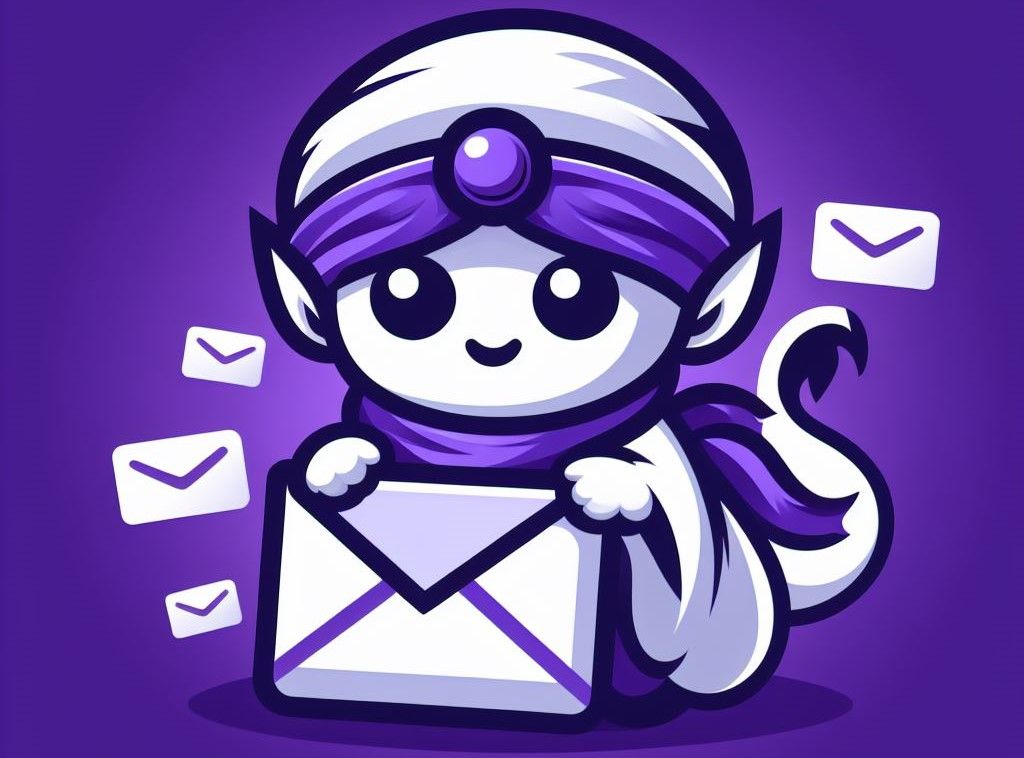subject-line-of-email
Stop wasting time on weak subject lines!
Email marketing is a powerful beast. It can drive traffic, nurture leads, and build brand loyalty... but it's not without its teeth. From battling spam filters to crafting attention-grabbing content, the road to email success is paved with challenges. And nowhere is this truer than with the almighty subject line. It's your first (and sometimes only) chance to make an impression.
Think of your inbox as a crowded marketplace. Your subject line is your storefront – it has to stand out, entice curiosity, and promise value to get people clicking. A weak subject line leads to unopened emails, and unopened emails mean missed opportunities. That's why mastering the subject line is crucial for higher open rates, click-throughs, and overall campaign success.
Whether you're a beginner navigating the basics of email marketing or a seasoned expert looking to sharpen your skills, this guide has you covered. We'll delve into the fundamentals of compelling subject lines, explore strategies designed to grab attention, and even share expert tips to keep you ahead of the curve. Get ready to transform your subject lines from forgettable to irresistible.
Subject Line Fundamentals
Before we discuss fancy tactics, let's focus on the basics of a strong email subject line. These are the building blocks of great open rates.
The Ideal Character Count
While there's no single magic number, research suggests the sweet spot lies between 30 and 50 characters. This ensures your subject lines are fully visible on most devices and email clients. But remember, shorter can often be even snappier – especially on mobile screens.
Avoid Vague Language
Forget about being clever if it means being confusing. Your subject line should clearly convey the core message of your email. Ditch generic phrases like "Our Latest Newsletter" and get specific. Instead of "Updates," try "3 Time-Saving Marketing Tips You Can Use Today."
Finding the Balance
Yes, keywords are crucial for search engine visibility. But don't shoehorn them in awkwardly at the expense of readability. Prioritize natural language first, then strategically incorporate a relevant keyword or two where they flow smoothly.
A great subject line isn't just about tricks and gimmicks. It's about striking the right balance between being brief, informative, and engaging.
Strategies to Capture Attention
Now that you understand the fundamentals, it's time to inject some personality into your subject lines. Here are proven strategies to help your emails jump out from the inbox crowd:
It's Not Just About the Name
Including the recipient's name is a classic tactic, but true personalization goes deeper. Can you reference their location, past purchases, or interests? For example: "[Name], Recommendations Just For You" or "Montreal, Ready for this Weekend's Deal?"
Create a Sense of FOMO
Limited-time offers, expiring discounts, and words like "now," "hurry," and "last chance" trigger our fear of missing out (FOMO). Use urgency carefully – overuse diminishes its effectiveness. Examples: "24-Hour Flash Sale Ends Tonight" or "Act Now – Seats Are Limited"
Spark a Conversation
Questions instantly turn your subject line into a dialogue with the reader. Keep them short and intriguing. Examples: "Need More Website Traffic?" or "Tired of Boring Emails?"
Quantify the Promise
Numbers stand out and give your offer greater tangibility. Examples: "Increase Sales by 20% This Month" or "5 Ways to Double Your Open Rates"
Tread Carefully, Brand First
If humour aligns with your brand voice, it can be a powerful attention-grabber. But be cautious – what's funny to you might fall flat (or worse, offend) others. Test with a small audience first.
Proceed with Caution
Emojis can add some visual flair, but be mindful. Overuse comes across as unprofessional, and they might not render correctly in all email clients. Use them selectively and always test how they display.
Don't try to use all these strategies in a single subject line! Choose the one that best fits your email's content and audience.
Mastering the Different Subject Line Types
Not every email is created equal, so your subject line shouldn't be either. Here's a look at common email types and how to customize subject lines:
Highlight the Deal
Get straight to the point! Mention the discount, freebie, or exclusive offer upfront. Examples: * "40% Off Your First Order – Ends Today!" * "Free Shipping This Weekend Only"
Promise a Solution
People love solving problems. Tease a helpful guide or tutorial within your email. Examples: * "Grow Your Instagram Following in 10 Minutes a Day" * "The 3-Step Guide to Inbox Zero"
Summarize Content
If your newsletter offers varied content, sum up the highlights in your subject line. Examples: * "This Week's Issue: Sales Tips, Industry Trends, & a Giveaway" * "Marketing Updates + Our Favorite Customer Success Story"
Set Expectations
Thank them for subscribing and offering a taste of what they can expect from your emails. Examples: * "Welcome to the Crew! Your First Discount is Inside" * "Thanks for Subscribing – Here's What You'll Get"
Offer Incentive to Return
Win back dormant subscribers with something enticing. A discount, special content, or even asking for their feedback can work. Examples:
- "We Miss You! Here's a Special Gift"
- "Did We Do Something Wrong? Tell Us How We Can Improve"
Context is vital. Match your subject line style to the type of email for the best results.
The perfect subject line is a bit like a mythical creature – elusive, yet attainable with the right knowledge. By understanding the fundamentals of length, clarity, and keywords, you've laid a strong foundation. With attention-grabbing tactics like personalization, urgency, and questions, you can pique curiosity and drive open.
But remember, email marketing is an ongoing experiment. Practice writing different subject lines, test them rigorously using A/B splits, and learn from your audience's response. What works for one business might not resonate with another.
